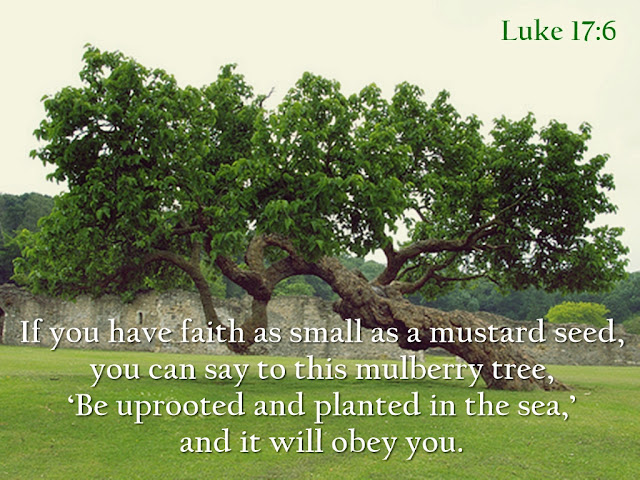The religious and political leaders question Jesus.
Now it happened on one of those days, as He taught the people in the temple and preached the gospel, that the chief priests and the scribes, together with the elders, confronted Him and spoke to Him, saying, "Tell us, by what authority are You doing these things? Or who is he who gave You this authority?" (vs 1-2)
We read in the previous chapter how Jesus boldly entered Jerusalem and drove out the corrupt merchants from the temple courts. This action, made the religious leaders want to know what right or authority He had to do such things.
Jesus replied by asking them yet another question.
Jesus was not trying to evade the question of the religious leaders. Instead, He used the question to explain who He is and to expose the hypocrisy of the leaders. If John was from God, then he was right in proclaiming Jesus as the Messiah-and if this is true, then Jesus had all authority.
Jesus then proceeds to tell them a story, a parable about a vineyard.
Then He began to tell the people this parable: "A certain man planted a vineyard, leased it to vinedressers, and went into a far country for a long time. Now at vintage-time he sent a servant to the vinedressers, that they might give him some of the fruit of the vineyard. But the vinedressers beat him and sent him away empty-handed. Again he sent another servant; and they beat him also, treated him shamefully, and sent him away empty-handed. And again he sent a third; and they wounded him also and cast him out. Then the owner of the vineyard said, 'What shall I do? I will send my beloved son. Probably they will respect him when they see him.' But when the vinedressers saw him, they reasoned among themselves, saying, 'This is the heir. Come, let us kill him, that the inheritance may be ours.' So they cast him out of the vineyard and killed him. Therefore what will the owner of the vineyard do to them? He will come and destroy those vinedressers and give the vineyard to others.”-(vs 9-16)
Through Scripture, a “vineyard” is used as a metaphor for the nation of Israel. In Luke 20, the crowd listening to Jesus’s parable would have recognised that symbol. With this story, Jesus proclaimed that if the Israelites rejected Jesus, the promises and inheritance of God would go to new owners. In other words, God was about to offer His grace, kindness, and salvation to the Gentiles. The chief priests, scribes, and elders reacted quickly, shouting, “That must never happen!” (v.16).
I think in all these cases the lesson is the same.
If we want answers from Jesus, we must deal rightly with the truth that has already been revealed. These men knew that John said Jesus was the Messiah, and were not willing to accept it. Are you willing to accept Him today? Are you willing to receive the testimony of His glory in your life??
For more on Luke chapter 20, you can follow this link for a previous study we made.
Looking forward to hearing your comments!
Have a blessed weekend
Angie




























